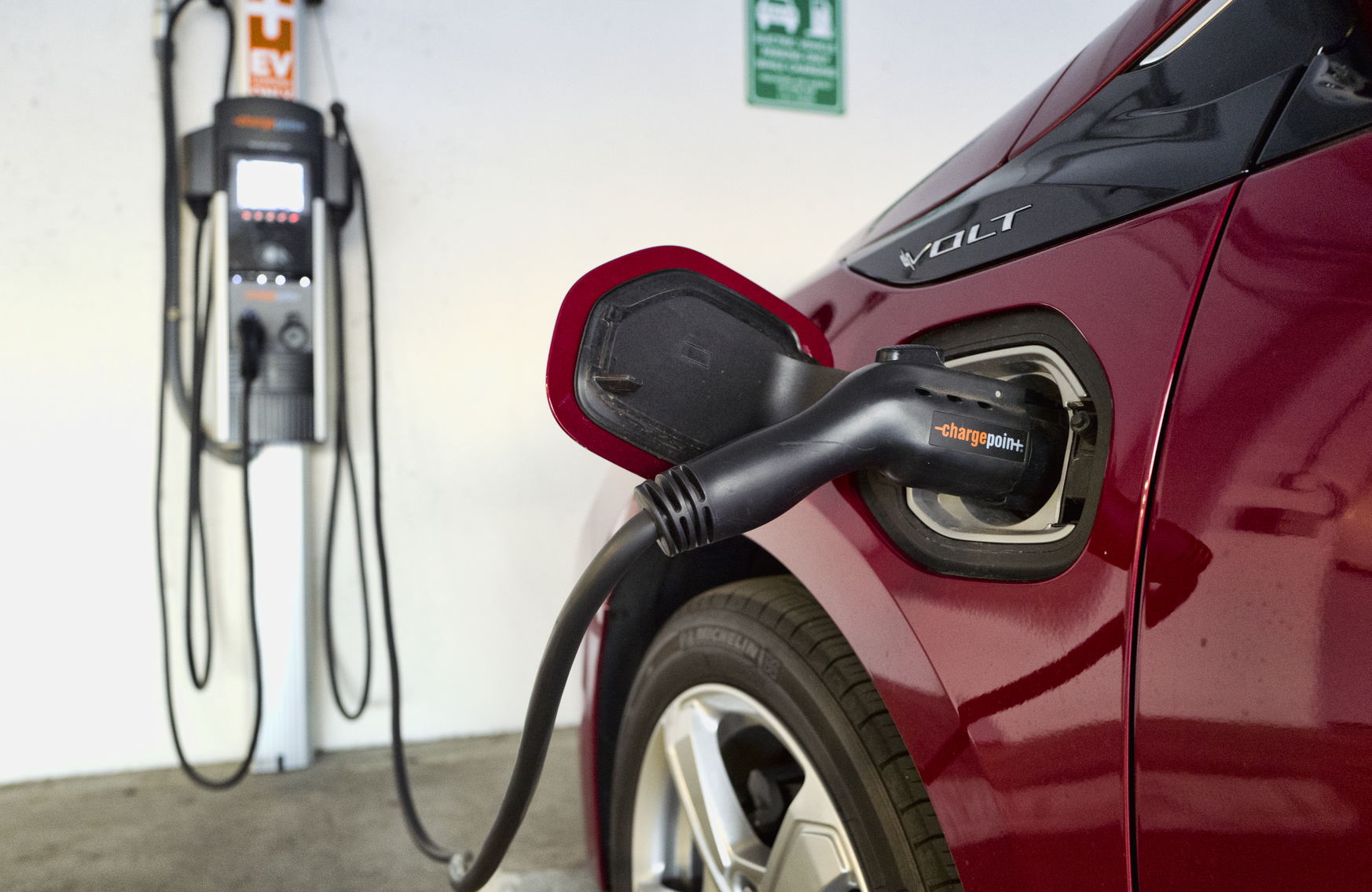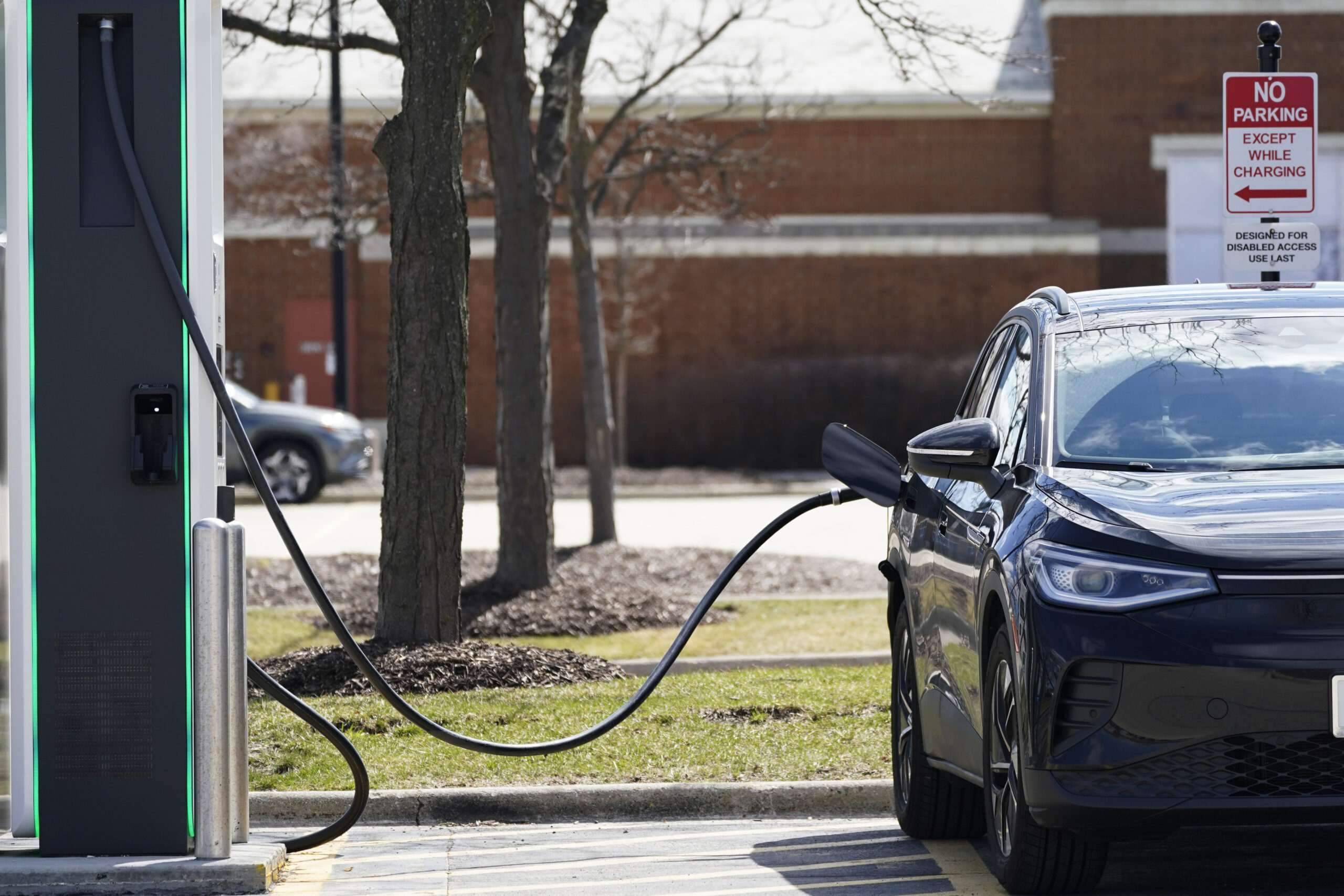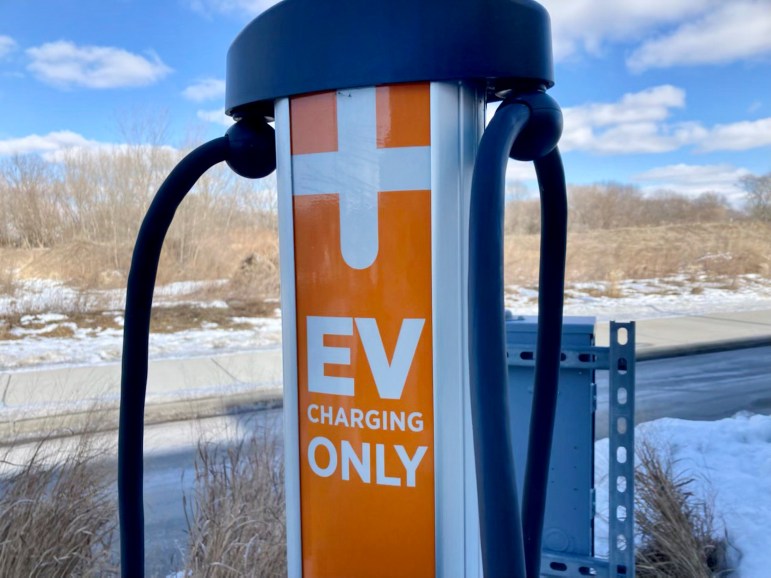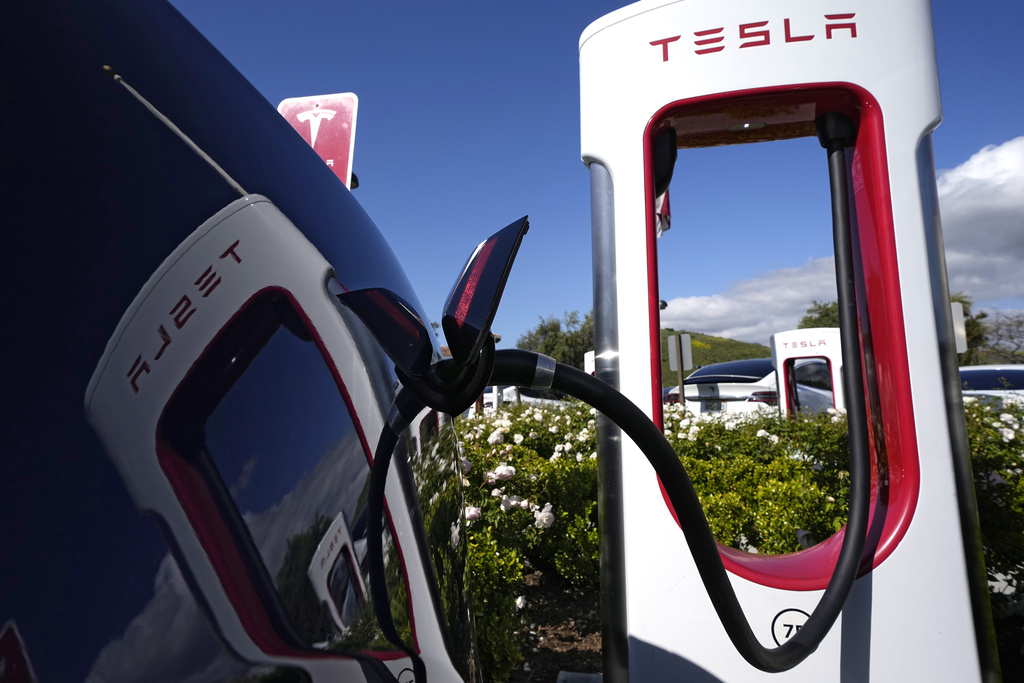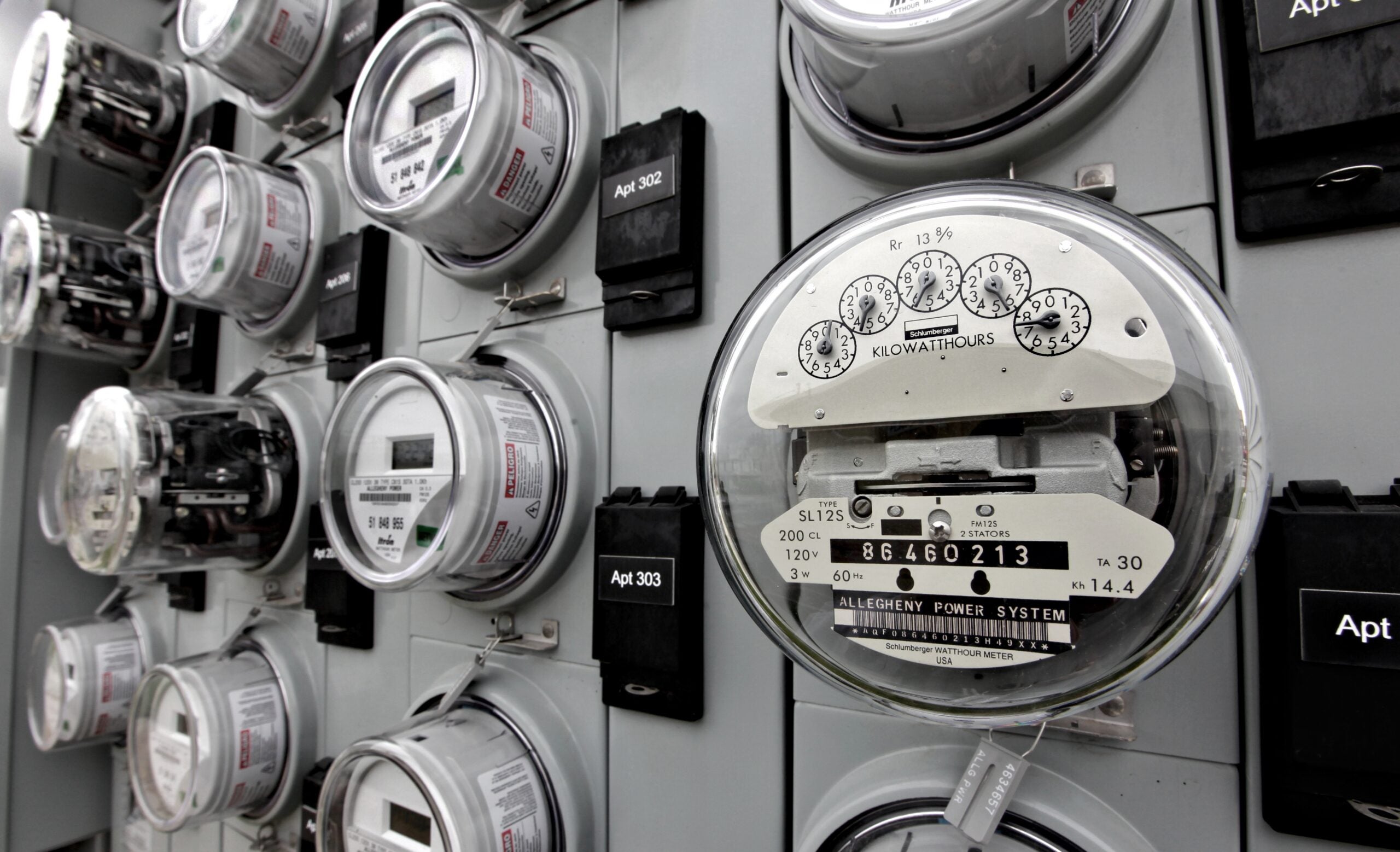Two of the state’s largest electric utilities will soon give customers the option of having utilities install and maintain electric vehicle charging stations in their homes or businesses under new programs approved by the Wisconsin Public Service Commission.
On Thursday, the commission approved electric vehicle pilot programs for We Energies and Wisconsin Public Service that would serve residential and commercial customers.
Residential customers could prepay or bundle the costs of installation and maintenance of electric vehicle chargers under contract with the utilities. Customers could either pay for the charger upfront or over time with a fixed monthly charge.
Stay informed on the latest news
Sign up for WPR’s email newsletter.
“I think that (the programs) are a step forward,” said Commissioner Tyler Huebner. “As we look at electric vehicles, I will note a lot more models are coming out, including the Ford Lightning model that was a very different vehicle than anything we’ve seen before.”
Ford Motor Co. reported a 184 percent increase in electric and hybrid vehicle sales in May with a record 10,364 vehicles sold last month. The company said it’s received more than 70,000 reservations for the F-150 Lightning in recent weeks.
Auto companies and utilities are trying to speed up the transition to electric transportation to combat climate change.
President Joe Biden has outlined his goal of reaching net-zero carbon emissions by 2050. That will require a massive shift in both the power and transportation sectors. Cars, trucks, planes, ships and trains account for roughly 29 percent of the nation’s greenhouse gas emissions. Biden has proposed half a million charging stations nationwide to accelerate the use of electric vehicles.
Democratic Gov. Tony Evers proposed using $5 million in bonding in the next two-year budget to allow greater development of electric charging infrastructure in Wisconsin. Limited charging infrastructure is one of the most common barriers to speeding up the transition to electric vehicles in the state. Wisconsin has around 110 fast-charging stations and nearly 400 “Level 2” public charging stations that allow vehicles to go about 20 miles for an hour of charge, according to RENEW Wisconsin.
While automakers are transitioning to electric vehicles, they currently make up less than one percent of vehicles on the road.
The Edison Electric Institute estimates there are more than 1.7 million electric vehicles currently on the nation’s highways. The association, which represents the nation’s investor-owned electric utilities, expects 18.7 million electric vehicles will be on the road by 2030. Utilities are investing nearly $3 billion in electric vehicle programs nationwide.
Xcel Energy, Alliant Energy and Madison Gas and Electric are among utilities offering electric vehicle programs.
The commission previously denied a proposal by We Energies and Wisconsin Public Service for electric vehicle programs that would’ve offered customers rebates of up to $1,000 to buy and install chargers. Regulators rejected that plan because it would have used ratepayer money to subsidize the program.
The programs approved Thursday were modeled after Xcel Energy’s program, which regulators approved last year.
“The way this is structured…works for me right now,” said Commissioner Ellen Nowak. “If this industry takes off, this may not be how it is going to look in the future, which is why they are calling this a pilot. But, I think (We Energies and WPS), they’ve done a good job here putting this together.”
The Citizens Utility Board said in comments filed with the commission that it supported the electric vehicle programs, saying it would protect customers who don’t take part in the programs from any negative rate impacts.
“The residential programs expand the range of utility service products available to customers in a way that will hopefully meet the needs of the growing EV owner or prospective EV owner population within (the utilities’) territory,” wrote Corey Singletary, the board’s regulatory affairs director.
RENEW Wisconsin said in comments filed with the commission that it’s excited to see utilities like We Energies and WPS offer electric vehicle programs.
“The proposed pilot programs will help accelerate EV adoption throughout the state, in addition to manage the additional load from charging electric vehicles,” wrote Jeremy Orr, RENEW’s emerging technologies program manager.
Both utilities proposed a cap of 7,500 residential customers each on initial enrollment in the programs.
The utilities also proposed possibly investing in charging infrastructure for municipal fleets and public transit as part of an electric vehicle program for low-income customers. A recent study by the American Council for an Energy-Efficient Economy found few states and utilities ensure that investments in electric vehicle charging infrastructure will benefit low-income residents and communities of color.
Commissioners welcomed the potential investments, but they directed the utilities to take another look at its program in part because it would use certain funds that would otherwise be returned to all ratepayers.
PSC Chair Rebecca Valcq said that was no different from having all customers pay to support the program. She highlighted that there’s a lot of pressure to increase rates for customers to pay for new investments in renewable energy and early retirement of coal plants as part of the clean energy transition.
“There’s got to be a better answer than we’re going to keep adding on top, and we’re going to continue to go to our customers to continue to fund this,” said Valcq.
Commissioners said the utilities should work with low-income community groups and their customers to understand what needs and opportunities exist.
Wisconsin Public Radio, © Copyright 2024, Board of Regents of the University of Wisconsin System and Wisconsin Educational Communications Board.

